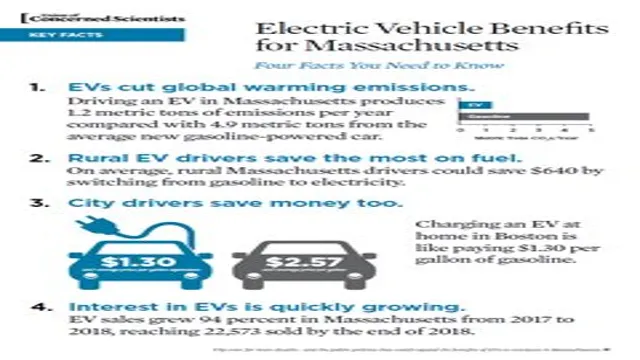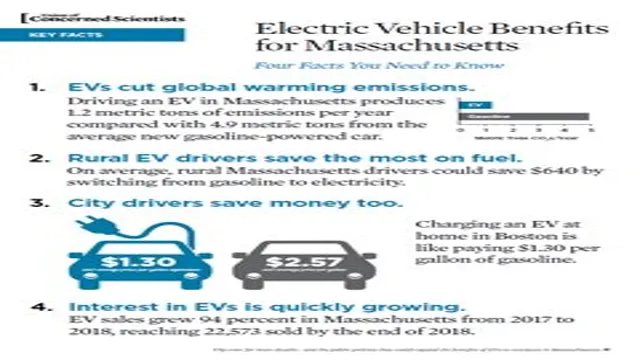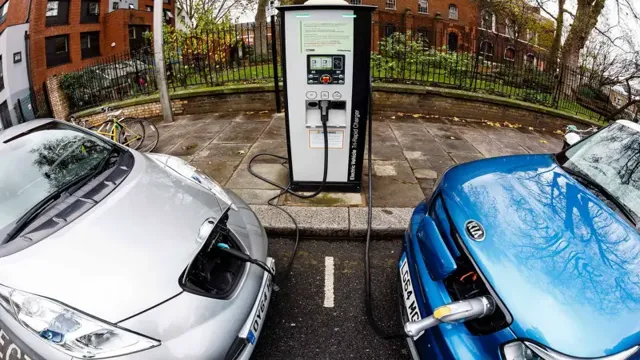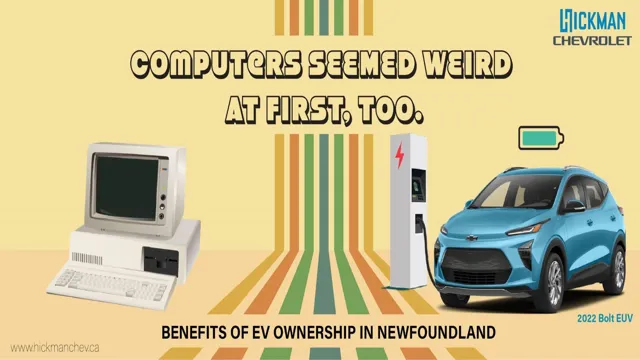Electric Cars: The Smart Financial Choice for Budget-Conscious Drivers
Electric cars are becoming more and more popular as people turn to eco-friendly alternatives that are more efficient and cost-effective. While the environmental benefits of electric cars are widely discussed, the financial benefits are often overlooked. Electric cars are not just good for the planet, but also for your wallet.
In this blog, we’ll explore all the financial benefits of electric cars, from low maintenance costs to tax incentives. Not only will you be reducing your carbon footprint, but you’ll also be saving money in the long run. So, let’s dive in and see how much money you could potentially save by making the switch to an electric vehicle.
Lower fuel costs
One of the most significant financial benefits of electric cars is that they have lower fuel costs than traditional gas-powered vehicles. Instead of spending money every week at the gas pump, owners of electric cars can simply plug their vehicles into a power source at home or at a charging station and pay a fraction of the cost of gasoline. Furthermore, electric cars are relatively cheaper to maintain since they don’t require oil changes or any of the complex systems that traditional gas-powered cars do.
While the upfront costs of purchasing an electric car may be higher than buying a conventional vehicle, the long-term savings on fuel and maintenance can provide significant savings in the future. Overall, lower fuel costs make electric cars a more economical option for consumers concerned with both their wallets and the environment.
Electricity is cheaper than gas
Lower fuel costs Switching to electricity for heating, cooking, or transportation can drastically reduce your fuel costs and help you save money in the long run. Electricity is cheaper than gas and offers more efficient energy consumption, making it a popular choice among homeowners and businesses alike. In addition, electric cars are becoming increasingly popular because they require less maintenance and offer lower operating costs than traditional gas-powered vehicles.
Not only will you save money on fuel with electric cars, but you’ll also be doing your part for the environment by reducing emissions and promoting sustainability. When comparing electricity and gas, it’s clear that electricity is the cheaper and more efficient option for meeting your energy needs. So, whether you’re looking to lower your energy bills or promote sustainability, switching to electricity is a smart and cost-effective choice.
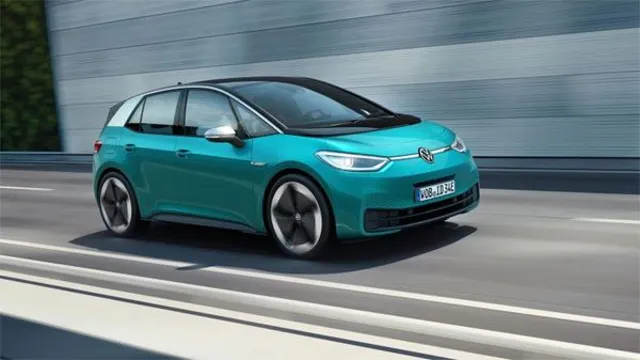
Electric cars have better fuel efficiency
Electric cars are becoming increasingly popular due to their many benefits, including better fuel efficiency. With gas prices steadily rising, electric cars offer an attractive alternative to conventional gas-powered vehicles. Lower fuel costs are perhaps the most significant advantage of electric cars.
Because they rely on electricity instead of gasoline, the cost of running an electric car is significantly lower than that of a gas-powered vehicle. Not only is electricity cheaper than gas, but it is also more stable in terms of pricing, meaning that you won’t have to worry about fluctuations in the cost of fuel. With an electric car, you can spend less money on fuel and put that money towards other expenses, such as maintenance or upgrades.
Overall, electric cars offer better fuel efficiency and lower fuel costs than gas-powered vehicles, making them a smart and cost-effective choice for environmentally conscious drivers.
Tax incentives and rebates
One of the biggest advantages of owning an electric car is the financial benefits that come with it. Tax incentives and rebates are just some of the ways your wallet can benefit from going green. In many states and cities in the United States, electric car buyers can receive tax credits ranging from a few hundred to several thousand dollars.
These credits are designed to encourage people to switch to electric cars, which helps the environment by reducing harmful emissions. Additionally, some utilities offer rebates or discounts on electricity rates for people who drive electric cars. For example, some power companies will give you a discount if you charge your car during off-peak hours when they have excess capacity.
Overall, there are plenty of financial incentives to go green with an electric car, and the savings add up quickly over time. Plus, you get to feel good about doing your part to help the planet.
Federal tax credit up to $7,500
If you’re considering purchasing an electric vehicle (EV), there’s good news! The federal government offers tax incentives and rebates to incentivize EV adoption and reduce carbon emissions. The federal tax credit for EVs can save you up to $7,500, depending on the vehicle’s battery capacity. The credit applies to both new and used EVs, but once the manufacturer reaches a certain number of sales, the credit begins to phase out.
It’s essential to check with your state and local government to see if they offer additional incentives or rebates, which can stack on top of the federal one. These incentives can reduce the overall cost of an EV and make them more accessible to everyone. Plus, the savings don’t stop at the purchase; EVs typically have lower maintenance costs and can save you money on fuel.
With these incentives and the long-term benefits of driving an EV, it’s worth considering making the switch.
State and local incentives and rebates
Tax incentives and rebates are one of the most effective ways to promote the transition to renewable energies at the local and state level. Many state governments and local utilities offer rebates, tax credits, and other rewards to homeowners and businesses who install or use renewable energy products, such as solar panels or wind turbines. These incentives can reduce the upfront cost of renewable energy systems, making them more accessible for a wider range of consumers.
They also provide a long-term financial benefit, by lowering energy bills and increasing property values. Homeowners and businesses should research the different incentives and rebates offered in their area, as they can vary widely depending on the location and type of renewable energy system being installed. These incentives not only benefit the individual consumer, but also contribute to a larger shift towards a clean and sustainable energy future.
Lower maintenance costs
One of the biggest financial benefits of electric cars is the lower maintenance costs. With electric cars, there are fewer moving parts than traditional combustion engine cars, which means there are fewer things that can break and require costly repairs. For example, electric cars don’t usually require oil changes, spark plug replacements, or emissions testing.
This can save you money in the long run because you won’t have to spend as much money on maintenance. Plus, regenerative braking systems in electric cars mean that brake pads may last longer, again minimizing the costs of maintenance. Overall, electric vehicles are more efficient and require less maintenance than traditional vehicles, making them a smart investment for your wallet and the environment.
Fewer parts to maintain or replace
When it comes to purchasing equipment, one of the biggest factors to consider is maintenance costs. That’s why opting for equipment with fewer parts to maintain or replace can save you a lot of money in the long run. With less parts to worry about, maintenance becomes simpler and less costly.
Plus, fewer parts mean fewer potential issues that may arise. This means less downtime for repairs and more uptime for production. By choosing equipment with fewer parts, you’ll not only save money on maintenance costs but also increase productivity and efficiency.
So, if you’re looking for ways to reduce costs and increase efficiency, investing in equipment with fewer parts is definitely worth considering.
Electric cars have regenerative braking
As electric cars become more popular, drivers are realizing some significant benefits beyond just being more environmentally friendly. One of the most notable advantages is the reduced maintenance costs. Unlike traditional gasoline-powered vehicles, electric cars only have a handful of moving parts that require regular maintenance.
Additionally, electric cars utilize regenerative braking, which works by capturing and storing energy that would traditionally be lost when braking. This means that brake pads won’t need replacing nearly as often and the brakes will last much longer overall. In fact, some drivers report that they haven’t had to replace their brake pads at all after owning an electric car for several years.
This not only saves money on brake maintenance, but it also means fewer visits to the mechanic in general. When you pair this with fewer oil changes and no need to replace spark plugs or transmission fluid, it’s easy to see just how much money electric car owners can save on maintenance costs over time. All of these advantages combined make an electric car an incredibly attractive option for anyone who wants to save money in the long run while also doing their part to help the environment.
Resale value
One of the biggest financial benefits of electric cars is their high resale value. Unlike traditional gasoline cars, electric vehicles (EVs) retain their value much better over time. This is because they are still a relatively new technology and demand for them is constantly increasing as people become more environmentally conscious and seek out alternative modes of transportation.
Additionally, EVs require less maintenance and have fewer parts that can break or wear out, which can also help increase their resale value. Investing in an electric car can be a smart financial decision not only for the savings on fuel and maintenance costs, but also for the potential resale value down the road. So, if you’re looking for a way to go green and save money at the same time, an electric car may be just what you need.
Electric cars retain their value better than gas cars
One of the biggest advantages of investing in an electric car is their superior resale value compared to gas cars. Due to their high demand and low supply, electric cars tend to retain their value better in the market. This means that even after a few years, an electric car can still fetch a decent price when resold.
On the other hand, gas cars typically depreciate faster and may lose up to 20% of their value in the first year alone! The reason for this stark difference is the fact that electric cars have a longer lifespan, lower maintenance costs, and are more eco-friendly. Plus, with the rising popularity of electric cars, it’s safe to say their resale value will only continue to appreciate. So, if you’re in the market for a new car and want a smart investment, an electric car is definitely worth considering.
Conclusion
In conclusion, the financial benefits of electric cars are not only evident but also electrify-ing! With lower maintenance costs, fuel savings, tax incentives, and potential resale value, it’s clear that electric cars are the way of the future. Not to mention, you’ll be doing your part in helping the environment and reducing greenhouse gas emissions. So, why not make the switch and unleash the power of electricity in your daily commute? It’s time to go green while saving some green!”
FAQs
How do electric cars save money compared to gas cars?
Electric cars can save money in the long run by having lower maintenance costs, no need for oil changes, and lower fuel costs since electricity is cheaper than gasoline.
Do electric cars qualify for any financial incentives or tax credits?
Yes, depending on where you live, you may be eligible for federal and state tax credits, rebates, and other incentives that can lower the cost of purchasing or leasing an electric car.
Are there any hidden costs to owning an electric car?
While electric cars may have lower fuel and maintenance costs, there may be additional expenses such as installing a home charging station or purchasing a higher-priced electric car with a larger battery capacity.
How can owning an electric car affect my overall budget and finances?
Owning an electric car can positively impact your budget and finances by reducing the amount you spend on gasoline and maintenance, and potentially increasing the resale value of your vehicle in the future. However, it may require an initial investment that affects your budget in the short term.
